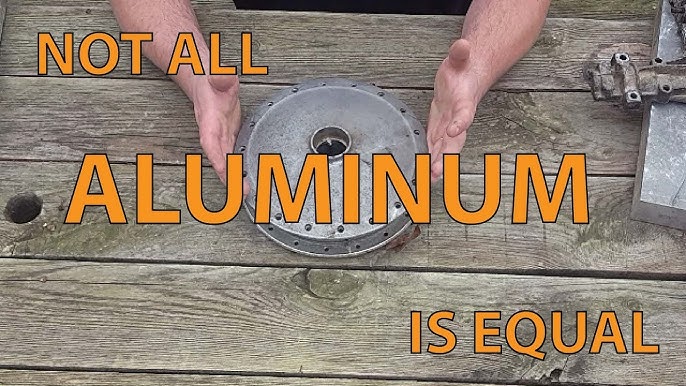All About Alcast Company
All About Alcast Company
Blog Article
What Does Alcast Company Mean?
Table of ContentsThe 5-Minute Rule for Alcast CompanyAlcast Company Fundamentals ExplainedThe 8-Minute Rule for Alcast CompanyThe Basic Principles Of Alcast Company The Main Principles Of Alcast Company Alcast Company Things To Know Before You Get This
The refined difference exists in the chemical material. Chemical Contrast of Cast Light weight aluminum Alloys Silicon promotes castability by minimizing the alloy's melting temperature level and improving fluidness during spreading. It plays a vital role in enabling complex mold and mildews to be filled accurately. In addition, silicon contributes to the alloy's toughness and use resistance, making it valuable in applications where longevity is crucial, such as vehicle parts and engine components.It also boosts the machinability of the alloy, making it easier to process into ended up items. This way, iron adds to the general workability of light weight aluminum alloys. Copper raises electrical conductivity, making it advantageous in electric applications. It also improves corrosion resistance and includes to the alloy's overall toughness.
Manganese contributes to the toughness of light weight aluminum alloys and enhances workability (aluminum casting manufacturer). It is typically made use of in functioned aluminum items like sheets, extrusions, and profiles. The presence of manganese help in the alloy's formability and resistance to fracturing during construction processes. Magnesium is a light-weight element that gives toughness and effect resistance to light weight aluminum alloys.
Get This Report about Alcast Company
Zinc enhances the castability of aluminum alloys and aids regulate the solidification procedure throughout spreading. It boosts the alloy's stamina and firmness.

The main thermal conductivity, tensile toughness, yield stamina, and elongation differ. Select appropriate resources according to the efficiency of the target item generated. Among the above alloys, A356 has the highest thermal conductivity, and A380 and ADC12 have the most affordable. The tensile limit is the contrary. A360 has the very best return strength and the greatest elongation rate.
Alcast Company Fundamentals Explained

In precision spreading, 6063 is well-suited for applications where elaborate geometries and high-quality surface finishes are vital. Instances include telecommunication enclosures, where the alloy's remarkable formability allows for sleek and aesthetically pleasing styles while keeping structural integrity. In the Illumination Solutions sector, precision-cast 6063 elements produce sophisticated and efficient lighting components that require complex shapes and great thermal performance.
It causes a finer surface area coating and far better rust resistance in A360. The A360 exhibits premium elongation, making it optimal for facility and thin-walled parts. In accuracy casting applications, A360 is well-suited for markets such as Consumer Electronic Devices, Telecommunication, and Power Tools. Its enhanced fluidity enables complex, high-precision components like smart device cases and communication gadget housings.
8 Easy Facts About Alcast Company Explained
Its special residential or commercial properties make A360 an important option for precision casting in these markets, boosting product sturdiness and quality. Aluminum alloy 380, or A380, is an extensively utilized spreading alloy with several distinctive attributes. It uses exceptional castability, making it an optimal choice for accuracy spreading. A380 shows excellent fluidity when molten, making certain complex and detailed molds are accurately reproduced.
In accuracy casting, aluminum 413 radiates in the Consumer Electronics and Power Tools sectors. It's commonly utilized to craft complex elements like smartphone real estates, video camera bodies, and power device housings. Its precision is exceptional, with limited resistances as much as 0.01 mm, guaranteeing remarkable product assembly. This alloy's superior corrosion resistance makes it a superb choice for exterior applications, making certain resilient, resilient products in the pointed out industries.
See This Report about Alcast Company
The light weight aluminum alloy you choose will significantly impact both the spreading procedure and the residential properties of the final item. Because of this, you must make your decision click resources carefully and take an enlightened technique.
Establishing one of the most ideal aluminum alloy for your application will certainly suggest considering a wide selection of features. These comparative alloy attributes follow the North American Pass Away Spreading Organization's standards, and we've divided them into two groups. The very first category addresses alloy attributes that affect the production process. The second covers characteristics affecting the buildings of the end product.
Not known Facts About Alcast Company
The alloy you pick for die casting straight impacts several facets of the casting process, like just how easy the alloy is to collaborate with and if it is prone to casting problems. Warm cracking, also referred to as solidification cracking, is a common die spreading defect for aluminum alloys that can lead to interior or surface-level tears or fractures.
Certain aluminum alloys are more susceptible to warm splitting than others, and your option should consider this. It can harm both the cast and the die, so you must look for alloys with high anti-soldering homes.
Corrosion resistance, which is currently a noteworthy feature of light weight aluminum, can differ substantially from alloy to alloy and is a vital characteristic to take into consideration relying on the environmental conditions your product will be revealed to (Aluminum Casting). Use resistance is one more property frequently sought in aluminum items and can set apart some alloys
Report this page